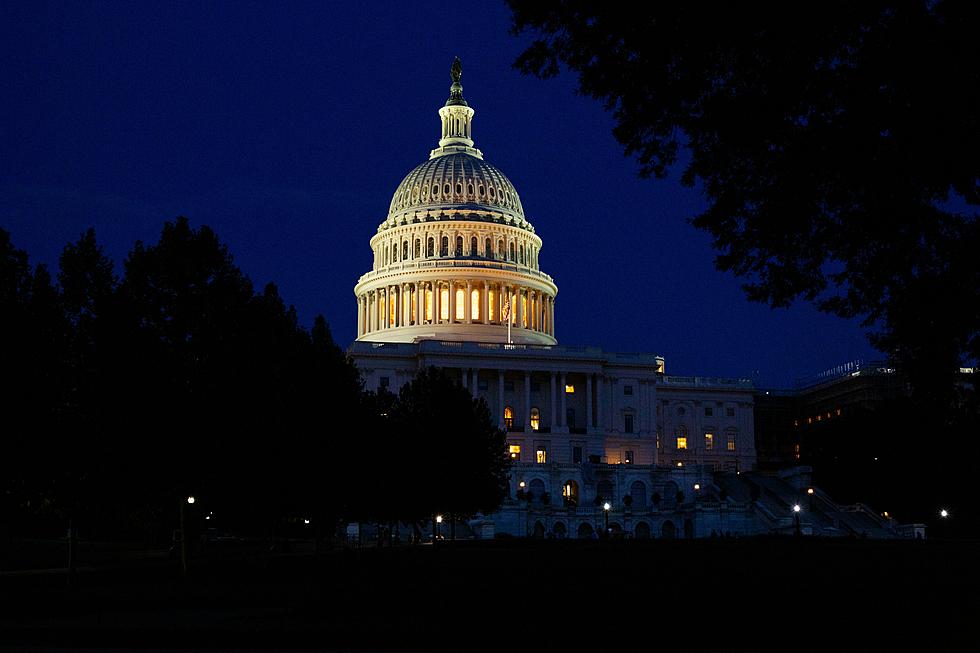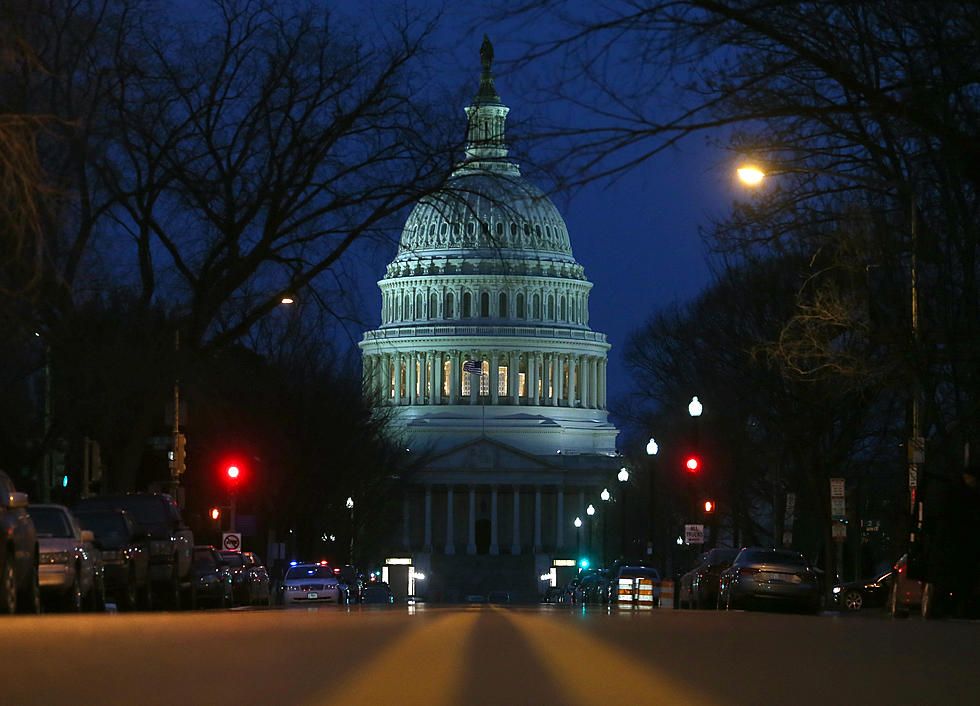
McConnell says Senate Will Consider Gun Background Checks
WASHINGTON (AP) — Senate Majority Leader Mitch McConnell said Thursday he wants Congress to consider legislation to expand federal background checks and other gun violence measures when lawmakers return in the fall.
The Republican leader told a Kentucky radio station that President Donald Trump called him Thursday morning and they talked about several ideas. The president, he said, is "anxious to get an outcome and so am I."
Republicans have resisted expanding background checks, but face enormous pressure to do something in the aftermath of the mass shootings in El Paso, Texas and Dayton, Ohio, over the weekend that killed 31 people.
"Background checks and red flags will probably lead the discussion," the Senate leader said, referring to legislation that allows authorities to seize firearms from someone deemed a threat to themselves or others.
The Republican leader has been under pressure to call senators back to Washington from their summer recess to work on gun measures. He rejected that idea, saying it would just lead to senators "scoring points and nothing would happen."
Instead he wants to spend the August recess talking with Democratic and Republican senators to see what's possible.
"What we can't do is fail to pass something," McConnell said. "What I want to see here is an outcome."
More than 200 mayors, including two anguished by mass shootingsin Texas and Ohio, are urging the Senate to return to the Capitol to act on gun safety legislation amid criticism that Congress is failing to respond to back-to-back shootings that left 31 people dead.
In a letter Thursday to McConnell and the Democratic leader, Chuck Schumer, the mayors wrote, "Our nation can no longer wait for our federal government to take the actions necessary to prevent people who should not have access to firearms from being able to purchase them."
The mayors urged the Senate to vote on two House-passed bills expanding background checks for gun sales that passed that chamber earlier this year. It was signed by El Paso, Texas, Mayor Dee Margo, Dayton, Ohio, Mayor Nan Whaley and others where mass shootings have occurred, including Orlando and Parkland, Florida, Pittsburgh and Annapolis, Maryland.
"There is no worse thing that can happen to a city," Whaley said of the weekend shooting that killed nine people in Dayton. "We cannot allow this tragic event to fade from our memories without taking action. Politics has stood in the way of action for too long, and I can tell you politics seems very petty when it is your friends and neighbors who are injured or dead."
The politics of gun violence are difficult for Republicans, including McConnell. He could risk losing support as he seeks reelection in Kentucky if he were to back restricting access to firearms and ammunition. Other Republicans, including those in Colorado, Maine and swing states, also would face difficult votes, despite the clamor for gun laws.
GOP senators are also considering changes to the existing federal background checks system, modeled on the so-called "fix-NICS" law signed last year that improved the National Instant Criminal Background Check system, as well as strengthening penalties for hate crimes.
While many of those proposals have bipartisan support, Democrats are unlikely to agree to them without consideration of the more substantive background checks bill.
"We Democrats are not going to settle for half-measures so Republicans can feel better and try to push the issue of gun violence off to the side," Schumer said Wednesday.
Sen. Joe Manchin, a West Virginia Democrat who, along with Sen. Pat Toomey, R-Pa., is pushing a bill to expand background checks, said Trump's support will be the determining factor in whatever gets done.
"At this point in time leadership comes from President Trump," Manchin said.
More From WIBX 950








![Mother of Mass Shooting Survivor Chastises Congress [WATCH]](http://townsquare.media/site/11/files/2022/06/attachment-Zeneta-Everhart-GettyImages-1241176522.jpg?w=980&q=75)
